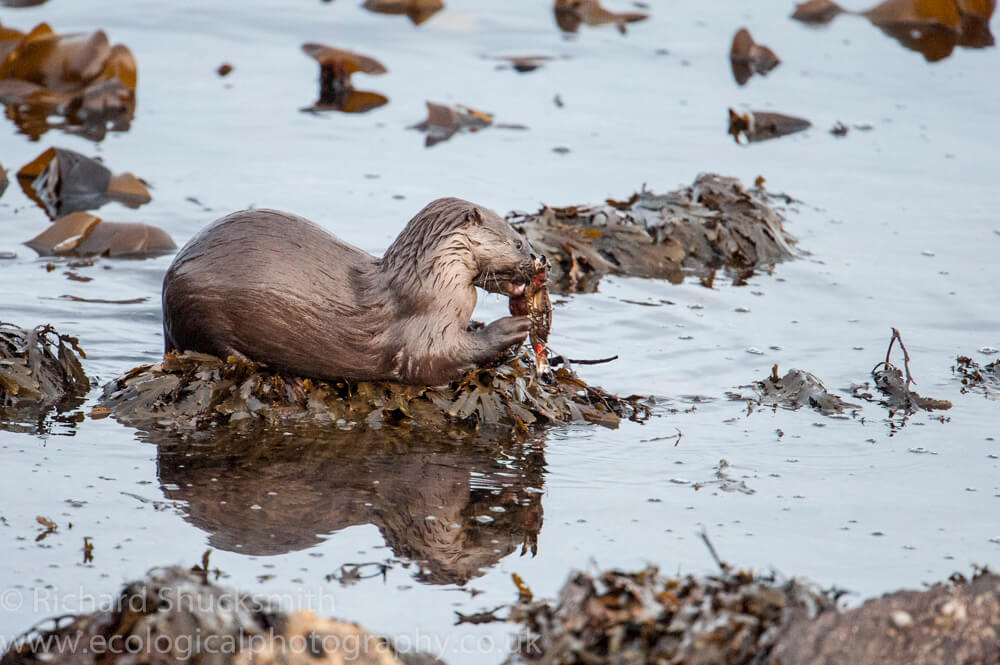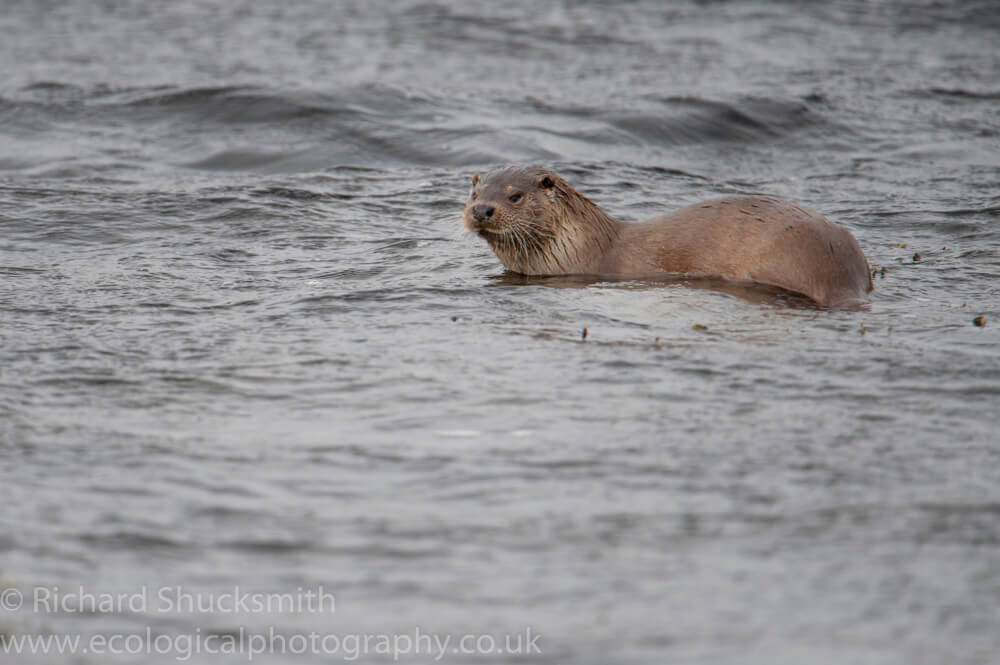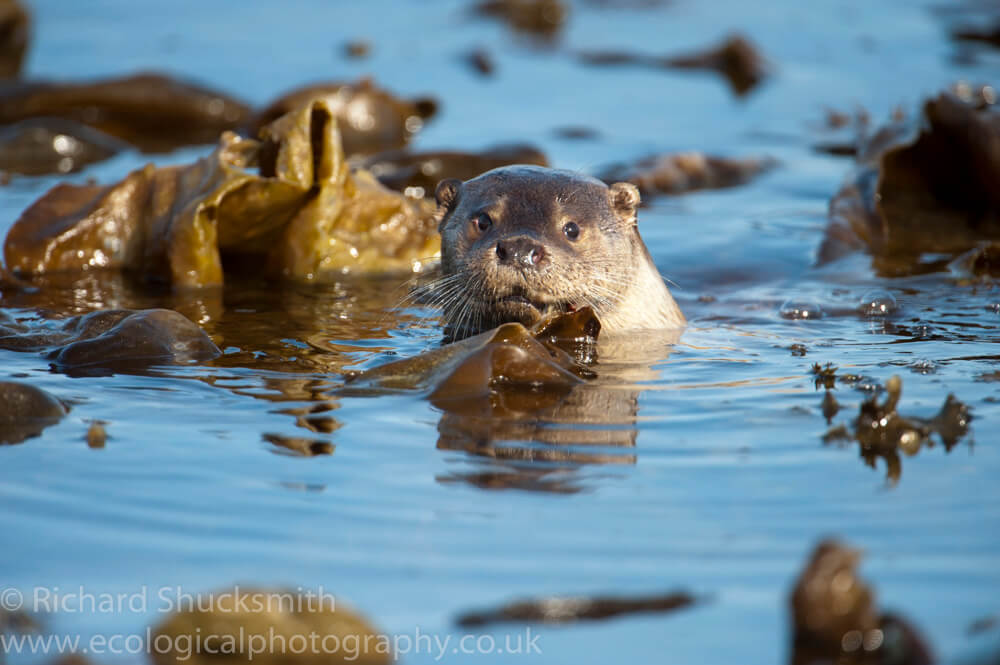This is an extract from my dairy when I first moved to Shetland and set about learning about where the best sites were to follow Shetland otters and to understand the behaviour of Shetland otters. I was interested to see the differences compared to the west coast of Scotland but first I need to explore the coast.
From the dairy:
The weather was OK so headed out to check up on a family of Shetland otters and observed some very interesting behaviour. In particular, this family, the mother had three cubs and now she only has one. It is unknown why the cubs have died but the most likely cause is lack of food creating increased competition between siblings with the strongest surviving. February, March is a time of year that is particularly difficult for Shetland otters, as the abundance of inshore fish populations are at their lowest, and they tend to feed more on crabs which for the amount of effort it takes to eat one, has a much lower nutritional value compared to a fish.
Interestingly a few days ago I watched this mother with her only cub, fishing in a little lochan next to the sea. Over an hour and half she caught three large flatfish that her cub had taken. She had to work really hard covering the whole lochan to catch those three flatfish, and the cub had taken them all. After the third flatfish the cub came back to its mum but its mum gave it a nip and a small fight broke out with the cub swimming off calling. The cub came back a few seconds later and mum gave it another nip and another fight broke out. The cub went off, calling, only to come back for the third time to be told off again. However, this time mum slipped out of the lochan over the bank into the sea and left the cub calling round the lochan. I followed the cub that slowly called less and less and then tried a bit of fishing itself. After a few minutes the cub headed out of the lochan and across to the holt where it disappeared inside.
Normally when you watch a mum and cub feeding, the mum will catch a fish or crab bring it back to the shore for the cub. While the cub is eating the prey mum carries on hunting, catching small prey that she eats at sea. However, this time in the lochan mum did not catch any other food and she worked really hard to catch the three flatfish that the cub ate.
My interpretation was mum needed some food herself. She had given the cub three big flatfish but had no food herself and wanted a meal. If mum doesn’t survive then the cubs don’t survive and her need for a meal became greater than the cub’s. So she pushed her cub away and gave the cub a telling off but he didn’t listen nor could he understand why mum had told him off. It took three times before he left, and mum disappeared over the bank so she could get some food. It must be difficult for both mum and cub when times are hard and food is short, to have to make decision on who gets the food. When you watch an otter family they have incredible close bond and spend most of their time in constant contact with one another. It could also be this is part of the splitting up process of a family as otter families can break up from April onwards.
















